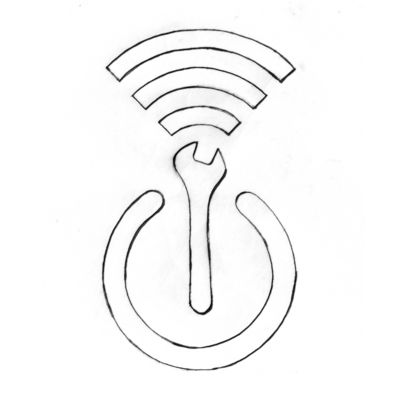A bi-weekly talk show by The Restart Project, plus a monthly documentary series produced by brilliant podcaster Dave Pickering, based on fixing triumphs, heartbreaks and wisdom shared at our community repair events – called Restart Parties – here in London. We go into real depth about good and bad design, obstacles to repair of electronics, emotional aspects of ownership, environmentally irresponsible business models, and the “end of life” of our gadgets. This podcast is for you if you'd like to fix your relationship with electronics. Let’s rethink, restart.
https://therestartproject.org/podcast/
Restart Radio: How repair informs design with Beeline
Today on Restart Radio, Ugo and Neil talk to Charlie Bruce and Tom Putnam from Beeline: a smart compass for cycling. A simple piece of hardware that displays simply an arrow and distance, Beeline removes the hassle of interpreting an entire map while you’re on the go. And it costs about the same as an average smartphone screen repair: which is often the price of badly designed smartphone brackets for cyclists.
Tom and Charlie hope that their product will encourage more people to cycle. They talk about what it’s like to be a small start-up within a competitive hardware ecosystem. One of the things that makes Beeline stand out is their willingness to learn from their customers. All too often, when a product fails, companies simply send out a replacement and ask that the owner recycles the previous unit. While the failure rates on their product are low, the Beeline team takes back all their broken devices, and examine each one to figure out what has gone wrong and why. They repair all faulty devices and reuse them as demo units for promotional purposes. They have learned from these failures over time, for example by redesigning the PCB (printed circuit board) in their second batch of units, to reduce chances that the soldering would get damaged during shipping. Another area of future work they’re considering is improving the design to reduce cases of water damage.
Image source: https://beeline.co/products/beelineAnother thing that makes Beeline more future-proof than many hardware start-ups is that all firmware (the base-level software that is embedded in the hardware) and the companion app are designed in-house. This means that after you buy a Beeline compass, it can actually continue to improve over time, rather than getting worse or quickly unsupported. This means happier customers and less waste – two things that tend to go hand in hand.
Software obsolescence is a growing problem in the world of hardware, but it’s not likely to affect Beeline in the near future. The device connects to your smartphone via Bluetooth, a relatively simple functionality, which wouldn’t be affected by lack of frequent updates to a phone’s operating system. As a result, Beeline is compatible with smartphones running old versions of Android and iOS.
We’d like to see more companies, small and large, take a more proactive stance in repairing their devices in-house and learn from their efforts. And we encourage those that are going the extra mile – such as Beeline – to take time to document and be more vocal and open about their approach to repairability and durability. As Tom said, it’s good for the environment, for their customers and for business too.
Links:
- Beeline
[Photos courtest of Beeline]
The post Restart Radio: How repair informs design with Beeline appeared first on The Restart Project.
